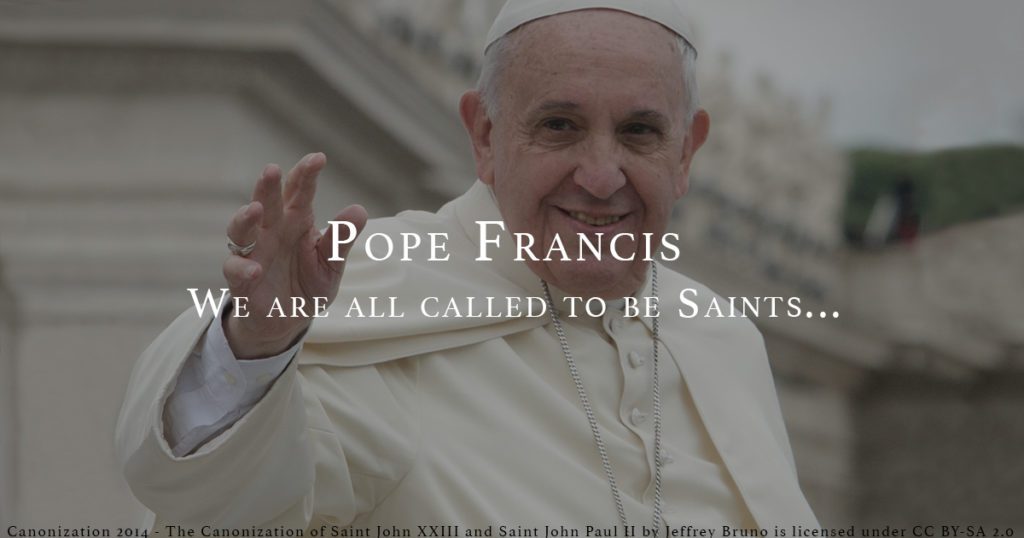
“Always and everywhere you can become a saint, that is, by being receptive to the grace that is working in us and leads us to holiness…”
– Pope Francis General Audience, Nov. 19, 2014
Of course, Pope Francis is not an official saint, but he has much to say about our call to become saints! When Pope Francis says that “always and everywhere you can become a saint” he is alluding to two very important things: First, he is saying that we are all called by God to the vocation of being a saint—such talk is not just for people interested in being a nun, religious brother or a priest, it’s for everyone! 2) Second, to be a saint means to be “holy” in whatever state of life we find ourselves. It is within and through the circumstances of our ordinary lives that we reach for holiness. The quest for holiness is our primary vocation.
Pope Francis expands these points in his 2018 Papal Exhortation, On the Call to Holiness in Today’s World, or in Latin, Gaudete et Exsultate:
“To be holy does not require being a bishop, a priest or a religious. We are frequently tempted to think that holiness is only for those who can withdraw from ordinary affairs to spend much time in prayer. That is not the case. We are all called to be holy by living our lives with love and by bearing witness in everything we do, wherever we find ourselves. Are you called to the consecrated life? Be holy by living out your commitment with joy. Are you married? Be holy by loving and caring for your husband or wife, as Christ does for the Church. Do you work for a living? Be holy by laboring with integrity and skill in the service of your brothers and sisters. Are you a parent or grandparent? Be holy by patiently teaching the little ones how to follow Jesus. Are you in a position of authority? Be holy by working for the common good and renouncing personal gain.”
Often, when it comes to discerning our call, we spend our energy on trying to figure out the “what”—“what” are we supposed to be or do? Are we supposed to be single, a sister or brother, a physical therapist, or a musician? Or am I called to take a certain job, say “yes” to a marriage proposal, move to another state to take care of a parent? Of course, these are all vital discernment questions.
But our more ever-present call asks “how” we are supposed to be: How do I treat my coworkers, how do I love my children, how do I think about those who make me angry, how am I the best social worker I can possibly be, how do I respond to those who treat me poorly, how do I emanate joy even amidst difficulties. The Church’s call is holiness is ultimately about “how:” how we love and bear witness to Christ “in everything we do.” There is no better guide in this regard than the Beatitudes, or as they are often called, the “be” attitudes. They illuminate our fundamental call of all calls: the call to love as Christ loves in all we do. If we get the “how” right, the “what” of our call will naturally follow.
STORY-BASED QUESTIONS
In my daily life, who models holiness? How am I inspired to be holy through their example?
How is God calling me to sainthood in the current circumstances of my life? For instance, “how” am I called to be a better parent or co-worker, or “how” am I called to be charitable, merciful, compassionate?
